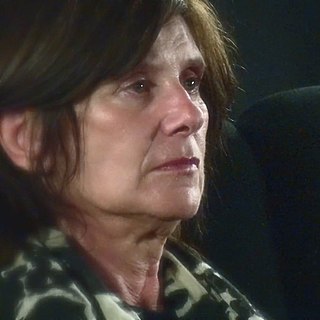A Quote by Suhasini Maniratnam
For people to understand, you can't speak 'cinema.' Cinema doesn't have alphabets, so you have to go to the local language. Even in England, if they make a movie in London they have to make it in the Cockney accent, they can't make a film with the English spoken in the BBC. So cinema has to be realistic to the area that it is set in.
Related Quotes
In narrative cinema, a certain terminology has already been established: 'film noir,' 'Western,' even 'Spaghetti Western.' When we say 'film noir' we know what we are talking about. But in non-narrative cinema, we are a little bit lost. So sometimes, the only way to make us understand what we are talking about is to use the term 'avant-garde.'
MORE CONSISTENTLY THAN EVER I WAS TRYING TO MAKE PEOPLE BELIEVE THAT CINEMA AS AN INSTRUMENT OF ART HAS ITS OWN POSSIBILITIES WHICH ARE EQUAL TO THOSE OF PROSE. I WANTED TO DEMONSTRATE HOW CINEMA IS ABLE TO OBSERVE LIFE, WITHOUT INTERFERING, CRUDELY OR OBVIOUSLY, WITH ITS CONTINUITY. FOR THAT IS WHERE I SEE THE POETIC ESSENCE OF CINEMA.
For me, as a film goer, I like nothing more than to sit in the cinema, have the lights go down and not know what I'm about to see or unfold on-screen. Every time we go to make a film, we do everything we can to try to systematise things so we're able to make the film in private, so that when it's finished it's up to the audience to make of it what they will.
More than my other films, Uncle Boonmee is very much about cinema, that's also why it's personal. If you care to look, each reel of the film has a different style - acting style, lighting style, or cinematic references - but most of them reflect movies. I think that when you make a film about recollection and death, you have to consider that cinema is also dying - at least this kind of old cinema that nobody makes anymore.
When I make a film, I am hoping to reinvent the genre a little bit. I just do it my way. I make my own little Quentin versions of them... I consider myself a student of cinema. It's almost like I am going for my professorship in cinema, and the day I die is the day I graduate. It is a lifelong study.
I know why I make films -cinema is a mode of expression that allows you to express all the nuances of a thing while including its opposites. These are things that can't be quantified mentally; yet they can exist and be juxtaposed. That may seem very contradictory. Cinema allows you to film these contradictions.




































